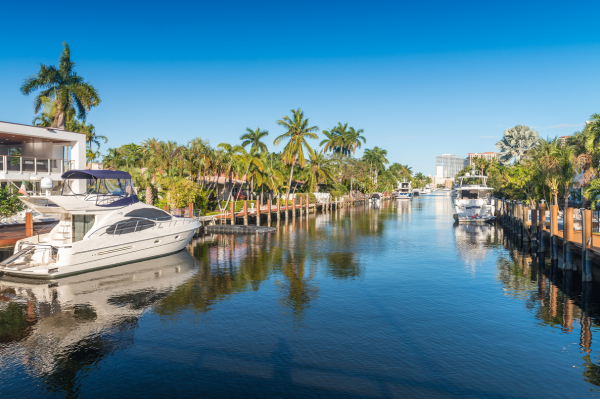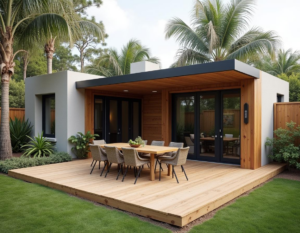Adding an Accessory Dwelling Unit (ADU) to your property in Florida can provide numerous benefits, from additional living space to potential rental income. However, understanding what qualifies as an ADU in Florida is crucial to ensure compliance with local regulations. In this blog post, we’ll explore the key criteria that determine whether a structure qualifies as an ADU in the Sunshine State.
- Definition of an ADU in Florida: An ADU, also known as a mother-in-law suite, granny flat, or backyard cottage, is a secondary residential unit on a single-family lot. In Florida, ADUs can take various forms, including detached structures, attached additions, and conversions of existing space.
- Compliance with Zoning Regulations: One of the primary qualifiers for an ADU is compliance with local zoning regulations. Zoning codes dictate the allowable land uses, density, setbacks, and other factors that impact ADU construction. Check with your local planning department to ensure your plans align with zoning requirements.
- Size and Square Footage: Florida’s regulations often specify the maximum size and square footage allowed for ADUs. These restrictions vary by municipality, so it’s essential to review local ordinances. Typically, ADUs are smaller than the main dwelling but provide functional living space.
- Independent Living Facilities: An ADU should be a self-contained living space with its own entrance, kitchen, and bathroom facilities. This autonomy is a key factor in distinguishing ADUs from other types of accessory structures.
- Utility Connections: ADUs typically require independent utility connections, including water, electricity, and sewage. Ensuring that the ADU has its own utilities helps establish its status as a separate dwelling unit.
- Occupancy Restrictions: Some municipalities in Florida may have occupancy restrictions for ADUs. These restrictions can include limitations on the number of occupants, rental agreements, or residency requirements. Check local ordinances to understand any occupancy rules that apply to ADUs.
- Permitting Process: To qualify as an ADU, a structure must go through the proper permitting process. This involves submitting detailed plans to the local building department for review. The plans should demonstrate compliance with building codes and zoning regulations.
- Accessory Structures vs. ADUs: It’s important to distinguish between ADUs and other accessory structures such as sheds or garages. ADUs are designed for residential use, while accessory structures may not meet the criteria for habitation.
- Affordability and Incentives: In some cases, Florida municipalities may provide incentives or prioritize ADUs for affordable housing initiatives. Explore any local programs or incentives that could apply to your ADU project.
- Consult with Local Authorities: When in doubt, consult with local planning officials or building departments to clarify whether your proposed structure qualifies as an ADU. They can provide guidance on specific regulations and help ensure your project meets all requirements.
Conclusion: Understanding what qualifies as an ADU in Florida is essential for a successful and compliant construction project. By familiarizing yourself with local zoning codes, size limitations, utility requirements, and other key criteria, you can navigate the process with confidence and create a valuable addition to your property. Always stay informed about any updates to local regulations to ensure a smooth ADU construction experience.






